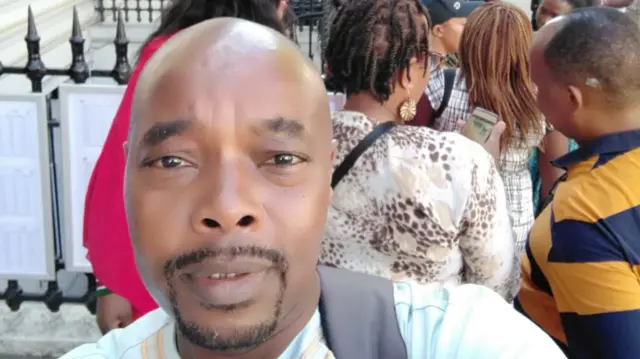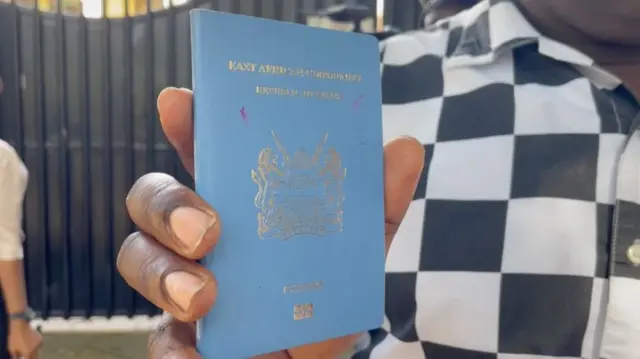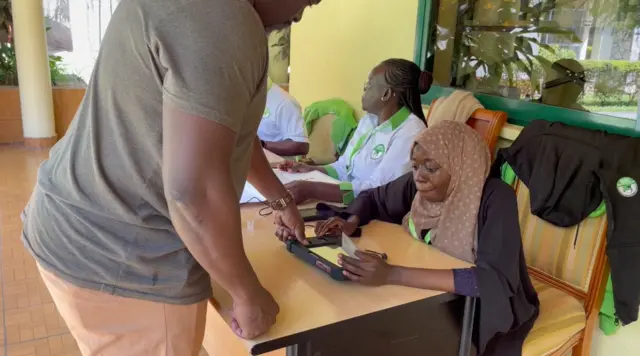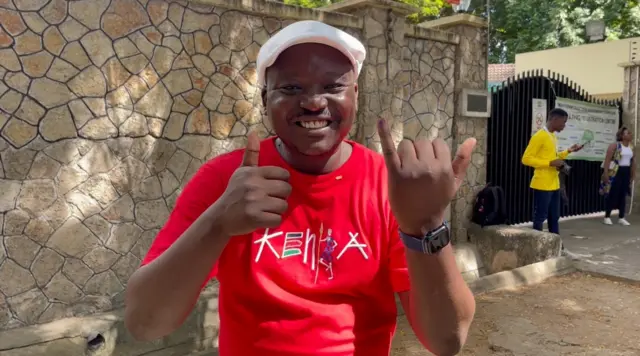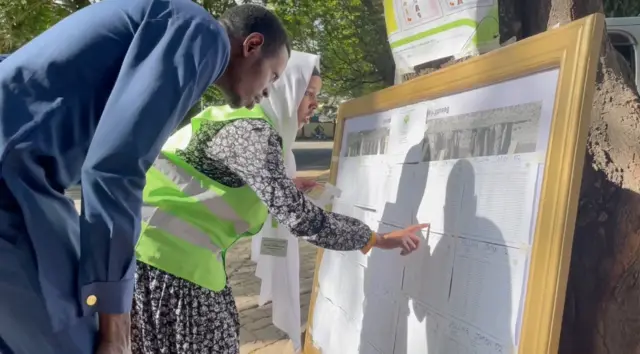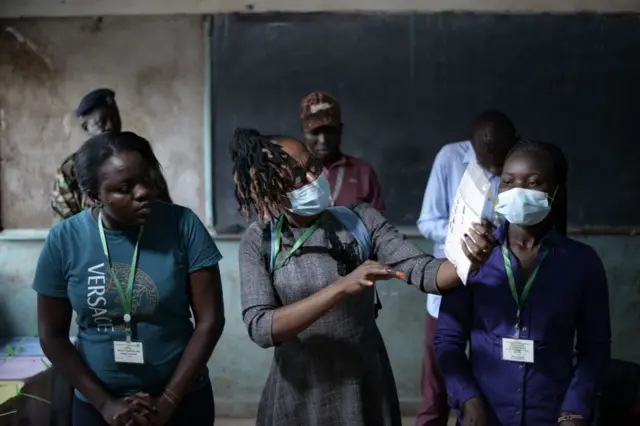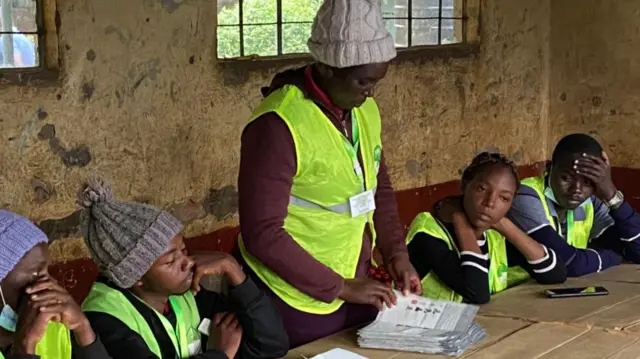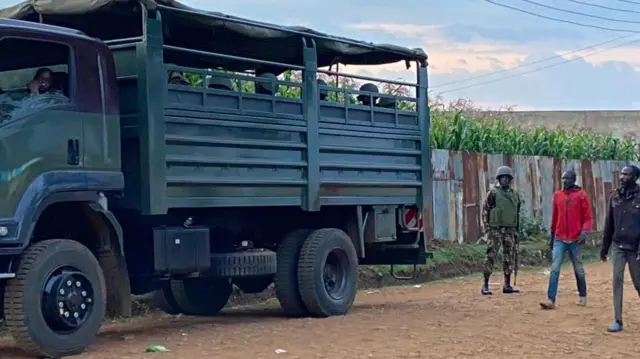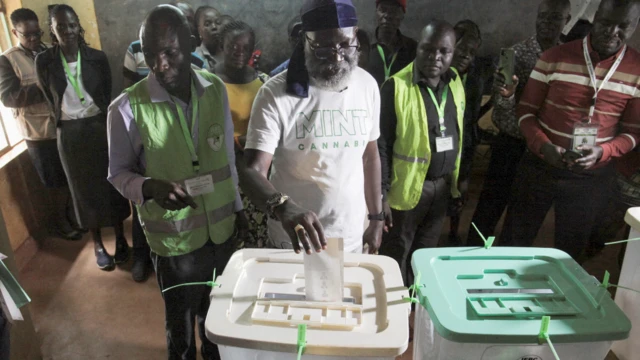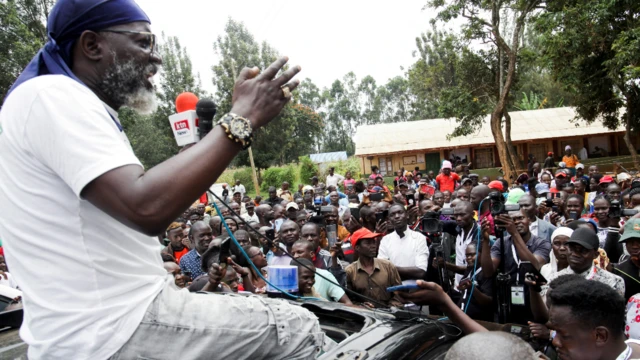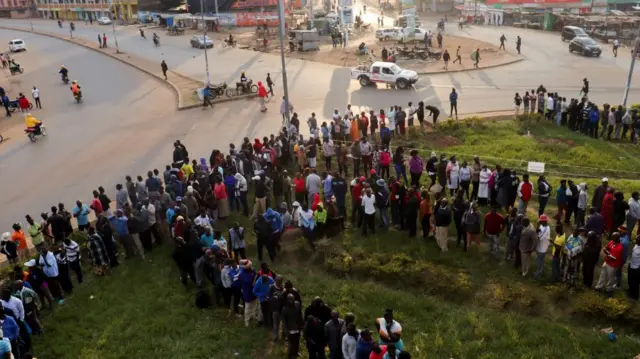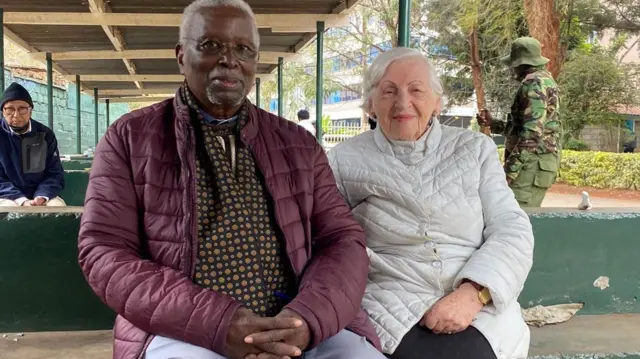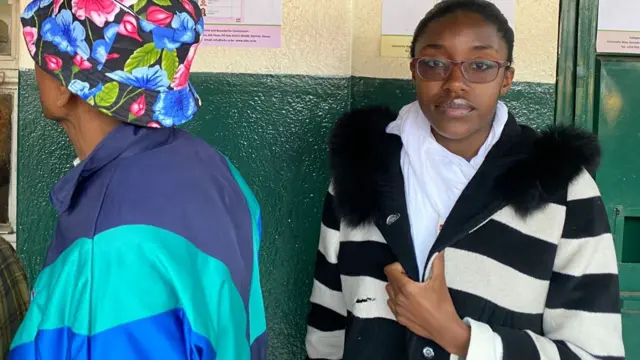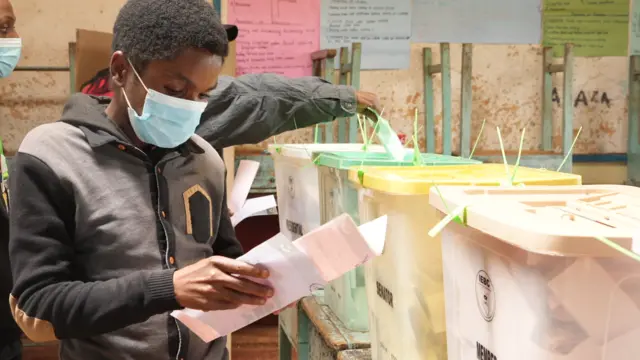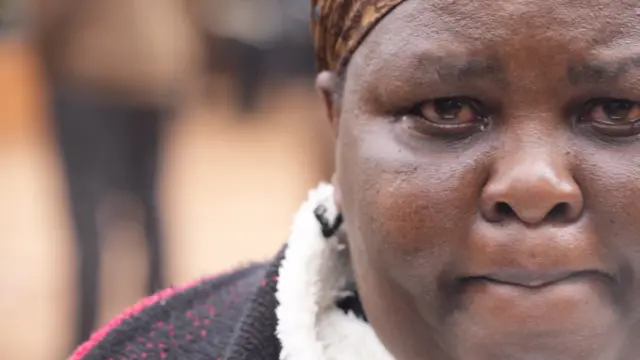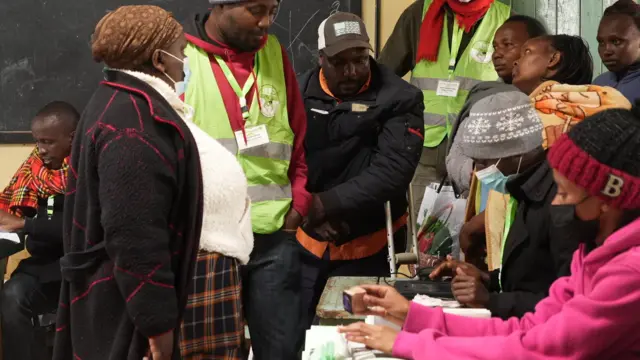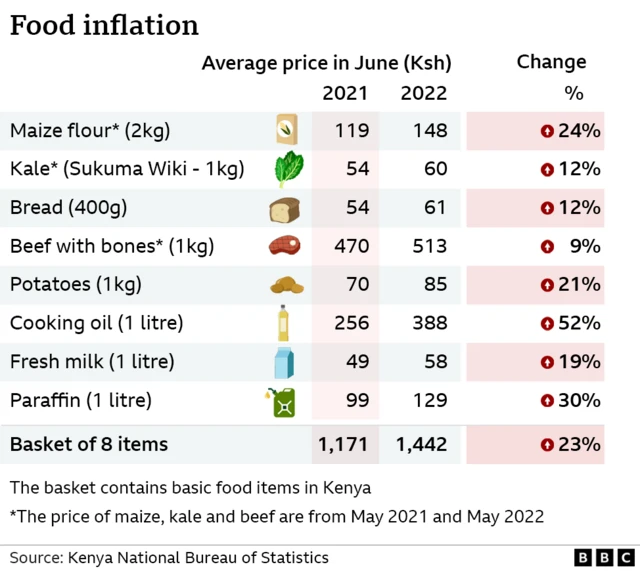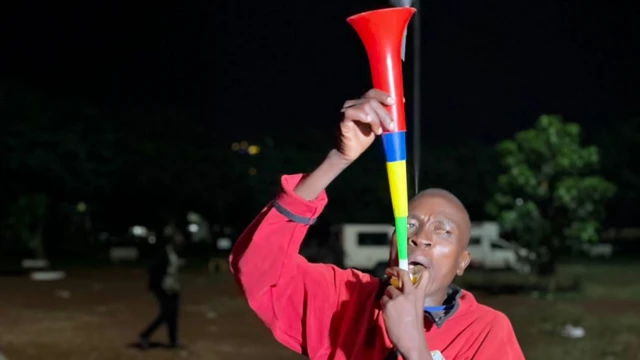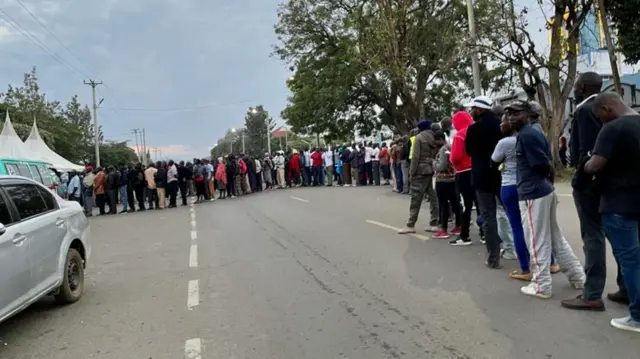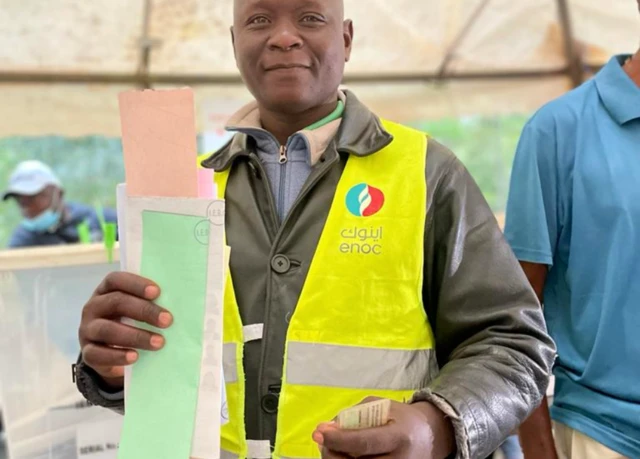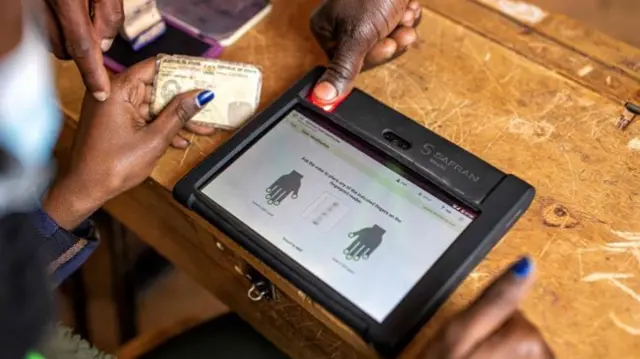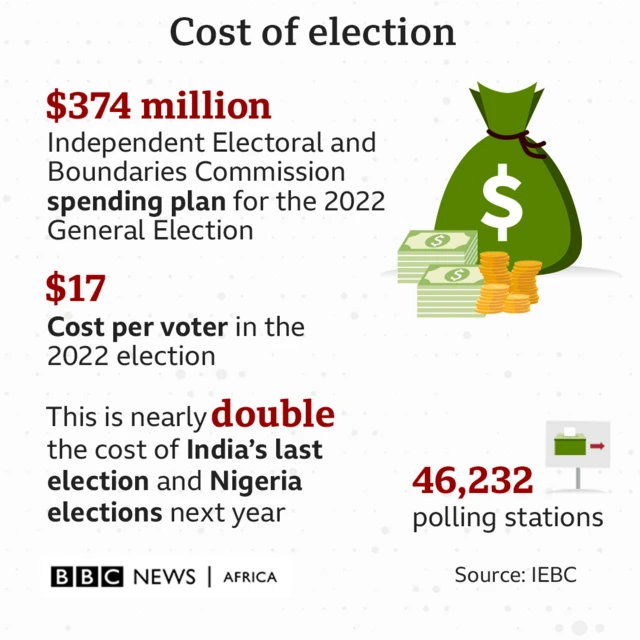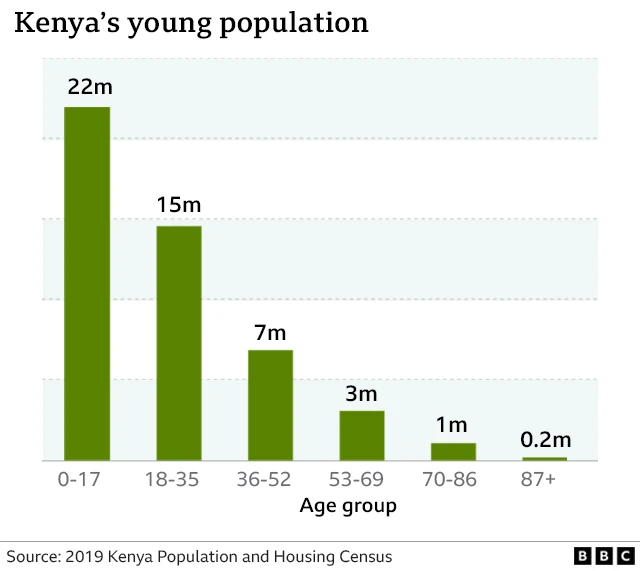Thanks for following the vote as it happenedpublished at 18:28 BST 9 August 2022
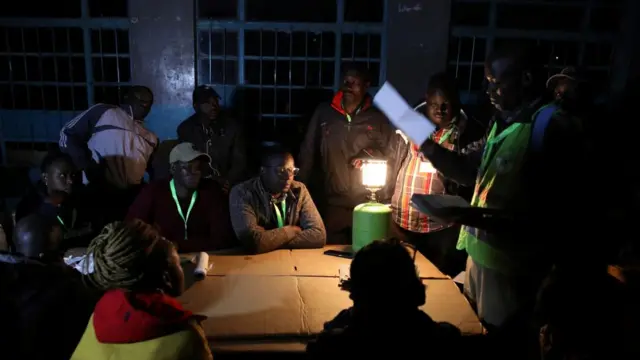 Image source, Reuters
Image source, ReutersThat’s it for our coverage of Kenya’s general election. As counting gets under way, here are some key takeaways from the day:
- Logistical delays and a failure of the identification kit in some parts of the country marred voting in some areas
- But otherwise the process was largely peaceful
- Polling stations are remaining open later if voting started late – and for those still in the queue at 17:00 local time
- An hour before polls officially closed, turnout stood at just over 56%
- Near the Somali border, intimidation tactics were reportedly used by suspected al-Shabab militants
- The election followed an intense campaign dominated by debates about living costs, unemployment and corruption
- Four candidates are vying to take over from President Uhuru Kenyatta, who is standing down after serving two five-year terms
- A tight presidential race is predicted between frontrunners Raila Odinga, a former PM, and current Deputy President William Ruto.
Follow the BBC’s live updates of the results - including in the parliamentary vote - as they are received by the electoral commission from polling stations across the country.
